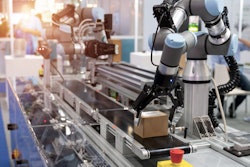DES MOINES, Iowa (AP) -- The World Food Prize Foundation is confronting both opposition to genetically modified crops and the divisive issue of global warming as it gathers hundreds of experts and national leaders to talk this week about how to feed a growing global population.
By awarding this year's prize to three biotechnology pioneers, the nonprofit foundation infuriated environmental groups and others opposed to large-scale farming. Two of the recipients hold prominent positions at biotech companies — Mary-Dell Chilton, founder and researcher at Syngenta Biotechnology, and Robert Fraley, chief technology officer at Monsanto. The third is Marc Van Montagu, founder and chairman of the Institute of Plant Biotechnology Outreach at Ghent University in Belgium.
But their line of work is in keeping with the philosophies of Norman Borlaug, the prize's founder, who was a strong advocate of biotechnology as a way to increase crop production. Van Montagu and Chilton independently developed the technology in the 1980s to stably transfer foreign genes into plants, which led to creating the means to genetically engineer plants. Fraley genetically engineered the first herbicide-resistant soybean in 1996.
"We're entering the period that Norman Borlaug worried about. We are facing the greatest challenge in human history, whether we can sustainably feed the 9 billion people who will be on our planet by 2050," foundation president Kenneth Quinn said.
Borlaug, the 1970 Nobel Peace Prize laureate awarded for his efforts to fight hunger and boost agricultural production, knew the three recipients, and expressed a wish before his death in 2009 that they be honored, Quinn said.
The World Food Prize Foundation relies on corporate, private and government contributions. Among its donors are Monsanto and Syngenta Foundation, and the news that scientists working for those companies drew immediate criticism.
"Rather than encouraging sustainable farming and self-sufficiency in impoverished communities as a way to alleviate poverty and malnutrition, the World Food Prize has been 'won' by a profiteering, biotech, seed-and-chemical monopolist that's the freakish opposite of sustainability," former Texas Agriculture Commissioner Jim Hightower wrote on his website Monday. He's been invited to speak at Wednesday at an event organized by the local Occupy World Food Prize organization.
The Occupy group also has planned protests designed to discredit the prize and disrupt the foundation's activities, which attracts about 1,000 scientists, policy experts, political leaders and business executives each year. Last year, protesters were arrested.
This year, former British Prime Minister Tony Blair and Cardinal Peter K.A. Turkson, president of the Pontifical Council for Justice and Peace at the Vatican, are scheduled to attend the three-day symposium. Thursday's award ceremony is at the Iowa Capitol.
"GMOs and factory farms are destroying Iowa, independent family farmers, and the planet, but the Occupy World Food Prize week of action shows everyday people are standing up and fighting back," said Larry Ginter, a farmer and a member of Iowa Citizens for Community Improvement, a citizen action group that aligns with the Occupy organization.
But Quinn said that to provide enough food at a time when drought, floods, and other natural disasters are more frequent, the world's farmers should have a range of practices, seeds and other tools at their disposal.
"Are we really prepared to not have the tools of biotechnology and genetic enhancement available to produce those seeds and other technologies that will allow farmers particularly the small holder, poor farmers deal with these volatile situations?" he said. "To me, they link together."
In addition to biotechnology issues, the foundation has invited experts to take on global warming.
Rattan Lal, a professor of soil science at Ohio State University, said agriculture has been a major contributor to climate change through the release of carbon dioxide and other gases into the atmosphere and expanding crop lands through deforestation.
"Agriculture has to be on any agenda for climate change mitigation in addition to improving water quality and of course food security," said Lal, who'll speak Friday.
He advocates moving farm subsidies away from encouraging production through the intensive use of pesticides, herbicides, and fertilizer to a system that pays farmers to improve water quality and promote conservation measures.
Juergen Voegele, the director of agriculture and environmental services for The World Bank, said the idea of incentives for climate-smart techniques is vital. For example, he said, better crop rotation naturally restores nitrogen to the soil without heavy fertilizer and manure use.
The World Bank works to alleviate extreme poverty through loans and grants to developing countries in addition to providing policy advice, research and analysis and technical assistance.
"This is not rocket science, frankly," said Voegele, who also was scheduled to speak Friday. "There's a lot out there people know about and many people use but it's not being used to the scale needed."






















